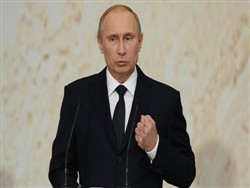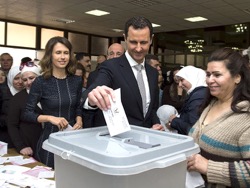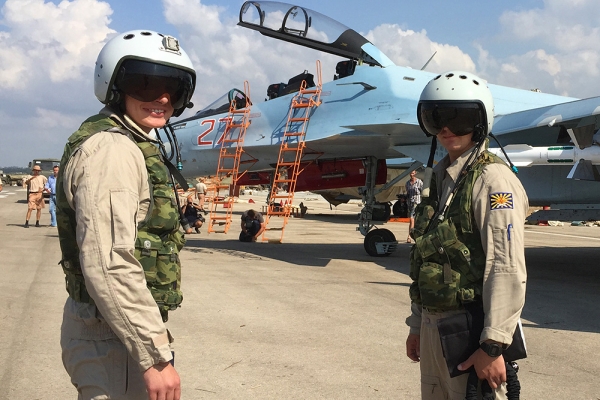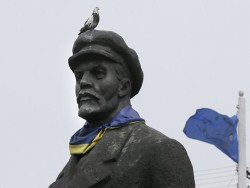
What he wants to achieve Vladimir Putin, once again stoking tensions around Ukraine? The simple answer is in the question. The President of Russia like the most when his opponents-partners to build theories about its real intentions. Is he trying to divert attention from the difficult situation in annexed in 2014 Crimea? To question (and so constantly violated) the truce in the East of Ukraine? To put pressure on France and Germany, the guarantors of the Minsk agreements? Re-ignite the tensions in Europe to a free hand in Syria and especially in Aleppo? To get a new trump card in negotiations with the United States? To keep the flame of nationalism in Russia before the autumn elections to the Duma?
Maybe a little of both. Moreover, there cannot be a hierarchy of tasks and, consequently, to determine the answer.
It all started with the announcement of the FSB attempts to carry out terrorist attacks in the Crimea, which in early August killed two Russian soldiers. On this incident (apparently, it actually happened, despite the lack of evidence) versions differ. Russian television showed the citizen of Ukraine Eugene Panov, who presented the intelligence officer and was detained at the Armenian border with arms and ammunition for the terrorist attacks. Its stated goal was to destabilize the socio-political situation in the region and scare away Russian tourists. Currently it gives the “confessions”.
This version of events was refuted by the President of Ukraine Petro Poroshenko: “the Accusations by the Russian side of Ukraine in terrorism in the occupied Crimea are heard as meaningless and cynically as the statements of the Russian leadership about the absence of Russian troops in Donbass”. Put forward the assumption that shooting on the isthmus between the Crimea and Ukraine happened because of the attempt to escape the Russian deserters that has happened many times with the annexation 2014.
The rise of tension
The important point is that Vladimir Putin immediately seized on the incident to raise the political stakes. He condemned “the people who seized power in Kiev” (in fact, it is tantamount to denying the legitimacy of the Ukrainian government), and accused them of using terrorism to counter the normalization of the situation in the country. In addition, he went even further and called meaningless forthcoming meeting in the framework of the Normandy format with the participation of Angela Merkel and Francois Hollande, the guarantors of the Minsk agreements. The leaders were to hold talks at the start in early September in China, the summit twenty.
The Minsk agreements are increasingly being violated from both sides. In the East of Ukraine every day there are incidents between the national army and forces of the separatists, the leader of whom was wounded in the attack. The number of victims among the civilian population is growing, and OSCE observers are becoming harder to work with. The political process, which involved the holding of elections and granting greater autonomy to Donetsk and Luhansk “republics” as well as the transfer of control over border with Russia to the Kiev authorities, has finally stalled.
Raising the tone towards Ukraine, President Vladimir Putin fuelled tensions in Europe, which gives him a bargaining chip in a potential agreement with the Europeans and Americans. It is possible that he eventually will meet with Hollande and Merkel after much persuasion and small concessions for the return to channel four.
“There’s no money but you keep”
In parallel with the intense discussion of the incident at Armyansk Russia announced the deployment in Crimea missile systems s-400, as if in answer to NATO, which confirmed the formation of a missile defense system at the July summit in Warsaw. According to observers on the Peninsula is in full swing militarization, however, the political and economic situation deteriorates. The authorities have to deal with the protests of the Crimean Tatars (their representative body was dissolved and one of the leaders was sent to a psychiatric hospital), and the Russian population is still waiting for execution is made after the annexation of the promises.
During the visit of Prime Minister Dmitry Medvedev in Crimea local pensioner complained to him a small pension. The Minister’s response (“no Money, you stay”) ridiculed in all social networks. Nothing else to suggest he’s not. Another time a teacher from Siberia (actually from Dagestan, approx. The new York times) told him that just can’t live on their meager wages. Medvedev has advised to change jobs or find a second and third job.
In the past (which already account) episode Ukrainian the Ukraine is not the only goal. The last few weeks, Russia is with the United States negotiations to find an acceptable to both parties options on Iraq and Syria. In particular we are talking about the fight against Islamic state and the future of the Syrian regime. U.S. Secretary of state John Kerry has more than ten times discussed these issues with his counterpart Sergei Lavrov and Vladimir Putin, but so anything and has not achieved.
The negotiation process
In negotiations there are two main stumbling blocks: the list of “terrorist” organizations (Moscow proposes to strike indiscriminately at the DAIS, jihadi movements and the West supported the rebels) and opposition groups, which allowed for a political settlement of the conflict. The fate of Bashar al-Assad, apparently, the obstacle is no longer: Americans no longer seek his departure, at least in the short term.
“We are one step closer to construction, I was just about Aleppo now say, which will allow us do together to begin to fight for that in this area, in this troubled land peace, and the people could return to their homes”, — said the Minister of defence of Russia Sergey Shoigu.
The negotiations are moving forward, but Russia, meanwhile, are not sitting idle. Her aircraft involved in strikes on the massed in the hands of the rebels of the Eastern districts of Aleppo, bringing the support of the army regime, the Iranian revolutionary guards and Shiite groups that are trying to squeeze the ring around neighborhoods with a population of 250 000 — 300 000 people.
When Vladimir Putin announced military intervention in Syria at the UN in September 2015, everyone thought that he seeks to divert attention from its actions in Ukraine. Today everything can be exactly the opposite. Drawing attention to the Ukraine, he wants to make everyone forget that his country participates in one of the most brutal sieges in modern history. For Assad, taking Aleppo would be more than just a symbolic victory. But Putin is not necessarily committed to this. It is enough to maintain threat, to push for compromise Americans who are not eager to get bogged down in a swamp.
Risk reduction
Barack Obama is still a few months to give a little gloss Syrian policy that everyone thought was a failure. After outstanding liabilities and erased red lines U.S. President left field, Russia. Although he, by his own admission, doesn’t trust Putin, he can contribute to the normalization of the situation a price unthinkable just a few months ago to concessions.
For the President of Russia the current situation is an opportunity to reach agreement before the change of US President. Despite the smiles in address Donald trump, the Russians are realists and seriously consider the prospect of Hillary Clinton in the White house. Thus, they have every reason to fear a tightening of American policy in regard to them, therefore they tend to sign a contract until January 2017.
Meanwhile, in Russia the parliamentary election is coming. A priori, Putin has no reason to worry. Already taken all administrative and police measures to ensure his party United Russia landslide victory. But he’s not going to go either to the slightest risk. In 2018 should be held presidential elections and in this perspective he rebuilds his surroundings. He recently replaced the head of its administration, which was four years Sergei Ivanov, one of my colleagues and friends at the Leningrad KGB in the 1980-ies. In addition, he has replaced several regional governors ex-bodyguards and formed a national guard, which reports directly to him and in some way competes with the police and the army.
Personnel policy
If all of these maneuvers (they largely resemble the so-called “personnel policies” of Soviet times) and there is a sense, we are talking about Putin’s desire to surround himself not by politicians, and artists who personally owe him their career. They were not public figures to Putin, not knew it in the past and have no influence on him.
Any authoritarian government prone to paranoia. For social cohesion around the leader there is nothing better than the appearance of the epic, which unites the glorious past and hopes for the return of its former greatness. Ukraine fits into this national picture is much better Syria, or the fate of Bashar al-Assad, who virtually don’t care about Russians. I bet that before the triumphant re-election of Vladimir Putin in 2018, the Ukraine and Crimea will be convenient symbols.








